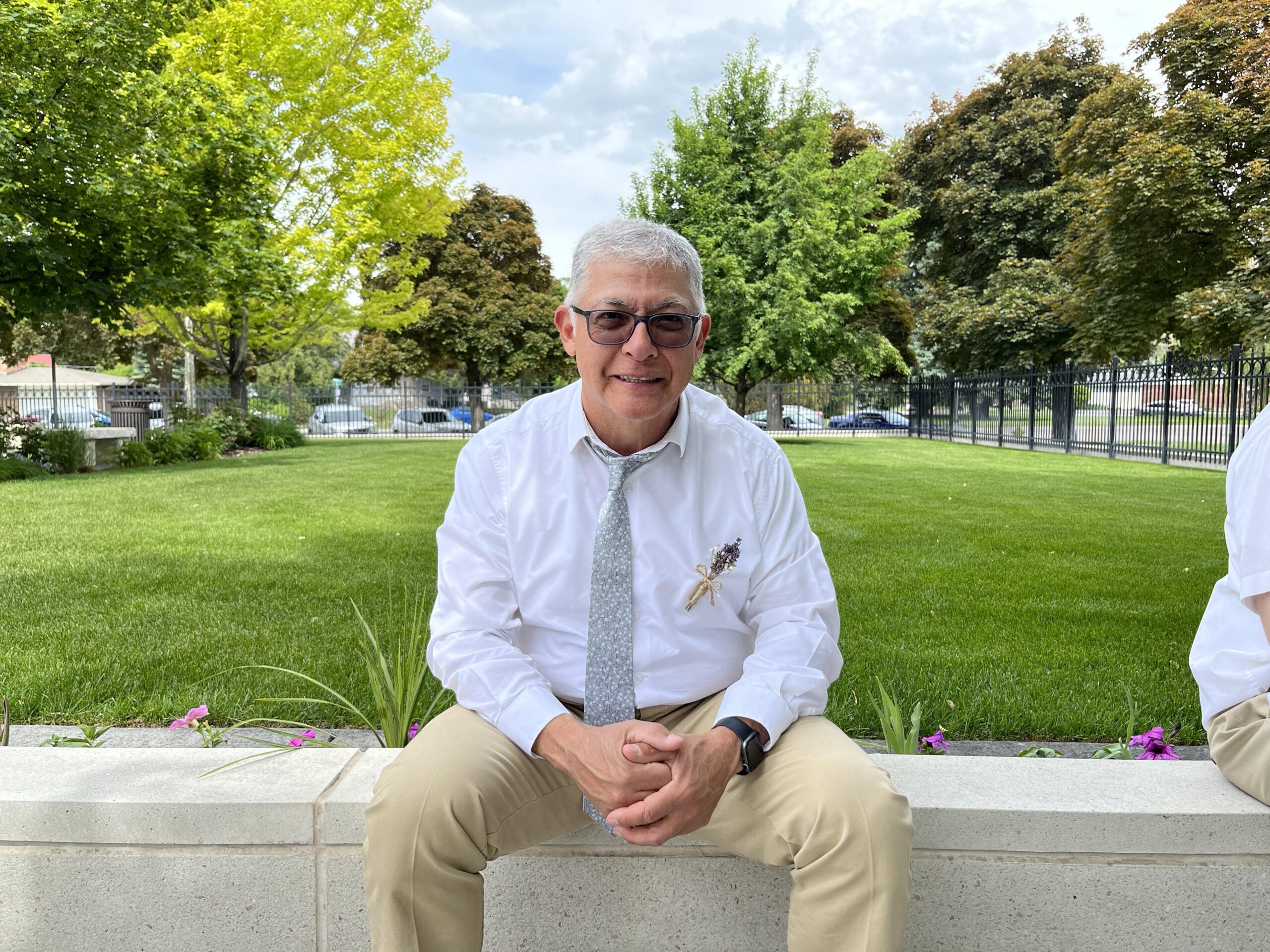
Antonio Tijerino is no stranger to the technology industry. He started his career 38 years ago during the tech boom of the 1980s in Silicon Valley. He found work almost immediately after receiving an associate’s degree in engineering and electronics technology at DeVry Institute of Technology. He worked as a programmer, writing assembly language code and maintaining Automated Test Equipment test fixtures used in the testing of Integrated Circuits.
Through his work, he found excitement and interest in computers, ultimately leading him to return to school. He received a bachelor’s degree in computer science and software development at National University. This catapulted his career, working in prestigious companies many people know today. His work ranged from technical marketing to network engineering, developing modern network technologies for the printer.
As household computers and home internet rose, so did cyber threats and hacking in the 1990s. Tijerino found cybersecurity fascinating, explaining, “You saw on the news how companies were being breached left and right, and I wanted to be part of that action.” He knew that, as a computer and engineering professional, he needed to stay on top of what was going on in the cyber world. That’s when a lightbulb went off for him, and he belonged in cybersecurity.
Transitioning and Self-Starting in Cybersecurity
“It was natural for me to have this hacker mentality…and I wanted to fight these [cyber] crimes,” Tijerino explained when discussing what was the turning point that led him into the field of cybersecurity.
He did not have a program or mentor to rely on when learning more about cybersecurity. Schooling for cybersecurity was scarce in the early days of cyber threats, so he had to be resourceful in his learning. Primarily working at HP, he learned on the job through trial and error as he continued his regular work. He also attended cybersecurity-related meetings and partook in study groups with colleagues to take the (ISC)2’s Certified Information Systems Security Professional (CISSP) exam, which he passed. Eventually, he had support from a manager to get internal training at his work, and from there, he worked in security testing and development.
His training and certifications ultimately made him a top candidate within the Fortune 100 company, where he worked to be hired into another department for security and risk management. His most favorite and enjoyable moments in his career were when he worked for a startup company, Sharewave Inc., that developed wireless protocols and video stream testing. Although nowadays wireless is almost everywhere, the type of work Tijerino was doing at that time more than 20 years ago was exciting and innovative. After over 30 years in the business, he decided to share his expertise in the field and become an instructor for Boise State University’s cyber operations and resilience program. He currently teaches an undergraduate course in defensive security and a graduate course in cyber-informed engineering.
Philosophies in Work, Academia and Life
Tijerino’s interest in teaching started when he had two interns from his last position at HP. Those interns worked their way to becoming full-time professionals in the technology industry. One even worked for the same company after his internship. That former intern still reaches out to Tijerino every now and then, seeking advice. Tijerino believes that it is important to continue sharing knowledge.
“There are people that are not willing to share their knowledge thinking that “If I hold back this knowledge, I would have more power,” Tijerino mentioned. However, his ideologies are quite the opposite. “The more you share, the more power you have.”
He jokes that he does not know everything, but being an instructor for Boise State has motivated him to be a student himself. He wants to make sure that he stays on top of current knowledge in cybersecurity to continue his passion for learning and teaching.
After putting many years of work into the field, Tijerino can confidently say he enjoys his free time. However, he wants to continue teaching as he sees this position as a perfect opportunity to continue learning and growing while enjoying retirement. Especially in the field of cybersecurity, the learning never stops.
“As we are trying to develop a workaround for a hack, the hackers are already building a workaround for our workaround.” As long as cybercrime is prevalent, cybersecurity will never stop changing.
This is what makes Tijerino an overall exceptional cybersecurity instructor. He wants to make sure students understand this concept. He advises students to always think like a hacker and always be inquisitive. “You don’t stop learning even after receiving your diploma.”
Tijerino is an example of that cybersecurity professional. While he might be enjoying his hard-earned retirement doing things he loves like bicycling, camping, or gardening, he will always be a student to help pave the way for future cybersecurity professionals.
Boise State’s Cyber Operations and Resilience Program
By Ranier Lieberman